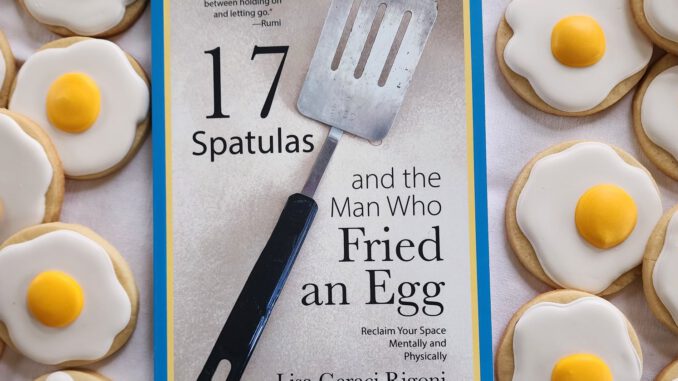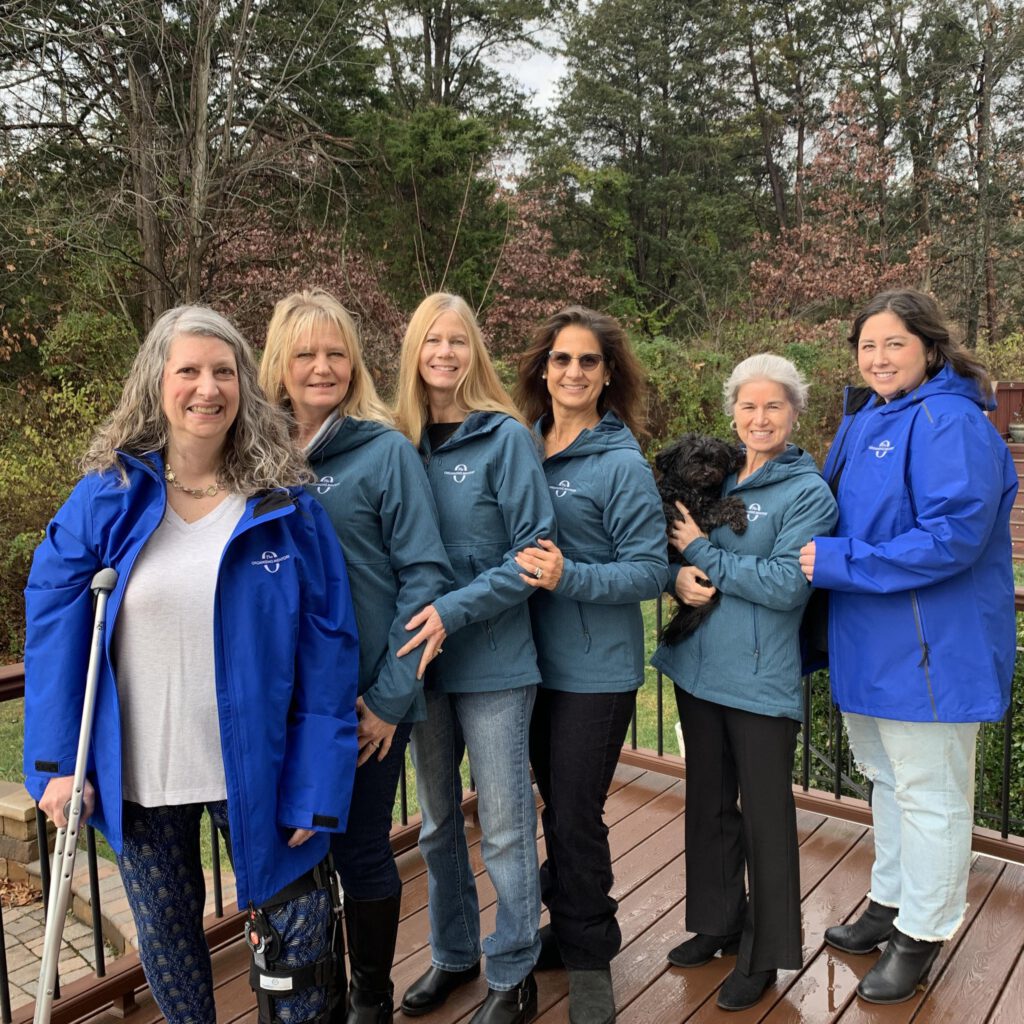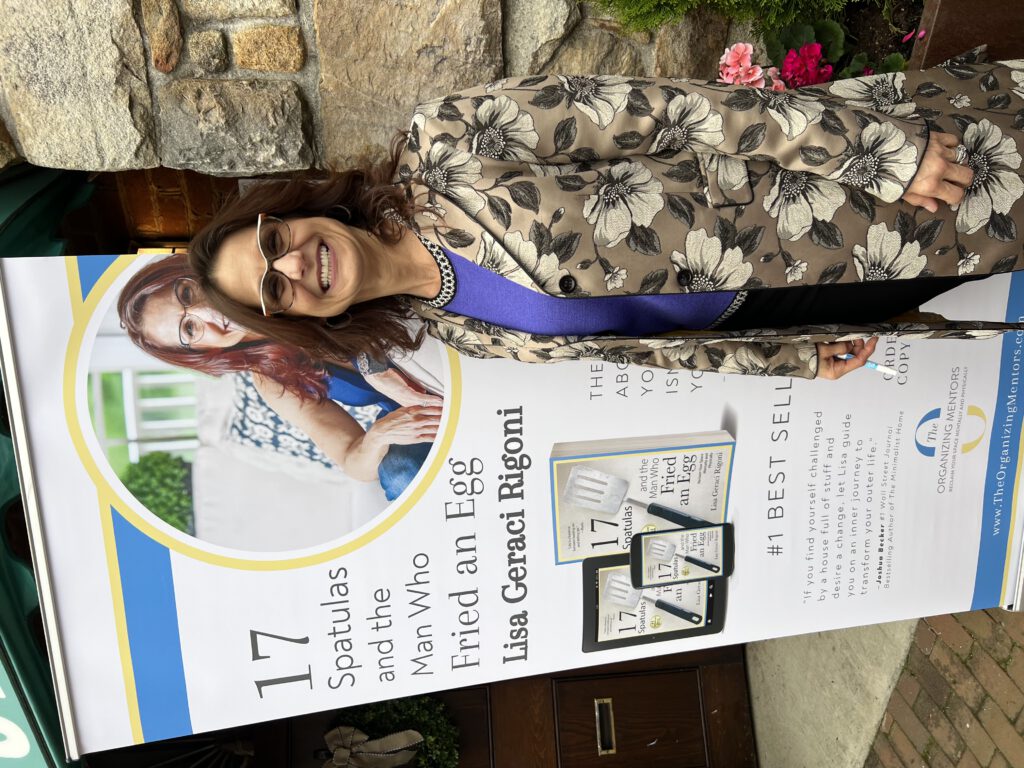
ONE BITE AT A TIME
By Chris Wadsworth
The statistics are shocking. The average American home has 300,000 items, and homes have tripled in size in the past 50 years. One out of 10 Americans rents an off-site storage space – the fastest-growing segment in commercial real estate for decades. A quarter of people with two-car garages don’t have room to park any cars in them, and 32% can fit only one car.
These are the kind of unfortunate facts that drive Lisa Geraci Rigoni. She’s the founder and owner of The Organizing Mentors, an Ashburn-based company that helps people weed out the clutter in their homes and organize what’s left.
The goal is to bring lasting calm to the home and peace of mind to the homeowner.
“I started my professional, organizing business under the name Leave It to Lisa in 2008,” Rigoni said. “I rebranded in 2015 when I realized we were doing much more than just organizing people’s stuff. We were teaching our clients – and mentoring them – to instill confidence that they do know how to organize and keep their home the way they want it.”
To that end, Rigoni has recently published a book that pares down 15 years of experience with clients into a self-help style book that offers both a physical and mental deep cleaning. She answered questions for Ashburn Magazine, and here is some of what she had to offer.
Q: Your book is called “17 Spatulas and The Man Who Fried an Egg – Reclaim Your Space Mentally and Physically.” That’s quite a mouthful.
“Yes it is. And I’ve heard seeing the title piques people’s interest.”
Q: Let’s break it down. What does the 17 spatulas refer to?
“When I exaggerate, I always use the number 17. I don’t know why. I’ve been doing it since I was small. And then I met a woman who had 17 spatulas, and she taught me how important it is to keep the things you love, no matter what they look like to other people.”
Q: And what does the “Man Who Fried an Egg” mean?
“The man who fried an egg is the story about a client I worked with for eight months who had gone through a significant amount of trauma and had become a recluse and a hoarder. He lived in a three-story townhouse in which he didn’t use the upstairs bedrooms and could not use the kitchen. He slept, did all his work, read and ate in the basement. We worked together – along with meetings with his therapist – and the growth and change he made in those eight months was astounding.”
Q: It sounds like this book goes beyond just helping people organize or weed their homes? Can you explain a little?
“Early in my career, I noticed a theme with my clients and myself – a struggle we all have of holding on and letting go of mental and physical clutter. We hold on for different reasons. We have excuses, regret, guilt. Sometimes we don’t even know why we hold onto a comment someone said to us, or a belief we have about ourselves. So, finding the answer to those questions is the first step in changing. Life is a balance of holding on and letting go, and once we acknowledge why we’re holding on, the answers will help us create more of a balance in our lives.”
Q: How did you first get into home organizing?
“I was on play dates and some of the moms would be talking about how cluttered their kitchen was or the basement or the garage, and I would offer to help. And the results were amazing. My friends felt great. Their space was less cluttered and more organized. It was very cathartic and rewarding for me, and I was really good at it. When a friend of mine suggested I should start a business, I didn’t think that it was a business, but – lo and behold – it was.”
Q: What’s the elevator version of how your service works?
“The Organizing Mentors help you create a system and a plan. We start by removing things you know you don’t want in the space or in the home. Everything that’s left – we organize with you, so it makes sense to you. We do have maintenance programs and set people on schedules to check in and make sure they are happy in their space and it’s not anxiety-filled and overwhelming.”

Q: Why do we accumulate so much stuff? It seems to be a universal problem.
“To most people, organizing isn’t fun. Buying things is much more fun. We live in a ‘more, more, more’ society where having lots of stuff makes people happy. Sometimes we don’t realize until [we feel overwhelmed] and we seem to have no space to breathe that we have just too much stuff. The key is to really need what you were buying to replace something that doesn’t work for you anymore. And to donate the item that you don’t need anymore.”
Q: What are the benefits to having less clutter and less “stuff” piled around?
“Your eyes can relax and breathe, so to speak. You know where everything is. You don’t over-purchase items that you already have because you know what you have in the first place. Some people cannot relax because they know they have piles of stuff they need to go through – papers to organize or clothes to go through or items that are sitting in boxes from their move 10 years ago. Our minds think clearer when our space is clearer.”
Q: If someone is thinking of doing a decluttering project in their own home, but feels overwhelmed at getting started – what’s your best single piece of advice (besides to buy your book)?
“The biggest thing is to set a schedule and just get started. It’s like anything else you need to do in your life – go to the doctor, get a haircut. If you make a plan, you will make it happen. If you can’t get any cars into it, don’t try to do your whole garage over [one] weekend. Set realistic goals. I often say, ‘How do you eat an elephant? One bite at a time.’”

